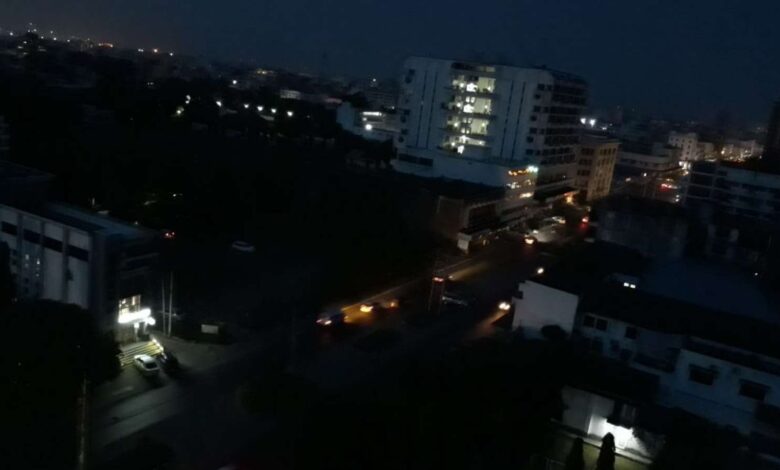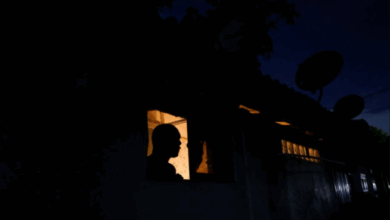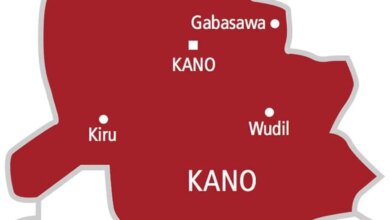Nigerian businesses to lose billions of naira as 25-day blackout hits Lagos, Ogun

Business owners, banks, and manufacturers are set to lose hundreds of billions of Naira as a 25-day blackout begins in Nigeria’s commercial nerve centre, Lagos State.
This comes as Ikeja Electric and Eko Electricity Distribution, on Friday last week, in separate statements, announced that Lagos and part of Ogun State (Agbara) would be plunged into weeks of power outages.
Eko DisCo said the outage would cover working hours from 8 am to 5 pm daily from July 28 to August 21, 2025.
“The outage will occur between 8:00 a.m. and 5:00 p.m. each day, affecting several parts of Lagos and other serviced areas,” Eko DisCo stated.
Also, Ikeja Electric, covering most parts of Lagos State, announced the blackout.
The DisCos explained that the outage is due to the maintenance of the Omotosho–Ikeja West 330 kV line by the Transmission Company of Nigeria.
DAILY POST reports that while Ikeja Electric serves larger parts of Lagos, Eko DisCo is in charge of the southern part of the state, including Agbara Community in Ogun State.
The Ikeja Electric and Eko DisCo are Nigeria’s electricity distribution companies with the highest share of power supply from the National Grid.
Unfortunately, Lagos State plays host to the majority of Nigeria’s businesses, with an estimated N13 trillion spent monthly on electricity bills, according to the Commissioner for Energy and Mineral Resources, Mr. Biodun Ogunleye.
According to the Nigerian Electricity Regulatory Commission’s first-quarter 2025 report, the two DisCos collected the highest revenue of N101 billion and N105 billion, respectively.
Unfortunately, the outage would result in a drop in revenue for the DisCos and further worsen the liquidity crisis in the country’s power sector.
CPPE speaks on implication for business owners, Nigerians
Reacting to the development in an interview with DAILY POST, the Chief Executive Officer of the Centre for the Promotion of Private Enterprise, Dr Muda Yusuf, said the cost implication of the blackout will be enormous for business owners, residents, and the Nigerian economy at large.
According to him, the outage would result in significant pressure on energy costs for businesses and manufacturers, which would impact productivity.
He said, “The cost of the proposal to shut down the supply to the grid for maintenance will be enormous. The implication is that businesses that rely on the grid for supply will now have to shift to alternative sources of power. So we are likely to see significant pressure on energy costs for businesses in this period.
“Some businesses cannot afford to shut down; they have to operate 24 hours. We are talking about hotels, hospitals, supermarkets, and some manufacturers. They have to operate 24 hours, and this requires power. Generally, even with the complaint of high tariffs, using the power sources from the grid is cheaper than alternative sources of power like diesel or gas.
“This has a potentially huge cost implication for businesses, which will impact their bottom line. We are talking about close to a month. This will affect productivity because some businesses will have to operate for shorter hours due to the cost of energy.
“It has implications for the economy in the Lagos area. Don’t forget Lagos is the commercial nerve centre of the country. It consumes a substantial part of the power generation from the grid.
“The cost will run into hundreds of billions of Naira,” he said.
He, however, added that the sacrifice of being without electricity supply is worth taking to boost the nation’s grid capacity.
“But again, we have been complaining about the quality of the National Grid, so if the government, through the TCN, is now committed to maintaining it and strengthening the capacity of the grid, I think it is a sacrifice that needs to be made.
“The performance of the grid has been poor due to poor investment, maintenance, and ageing facilities that have been there for years; that is why we have had a series of grid collapses.
“The grid appears to be one of the weakest links in the power supply chain. So the decision to maintain it is commendable, but the effect on business is enormous. But it is a sacrifice worth making at this time,” he added.





